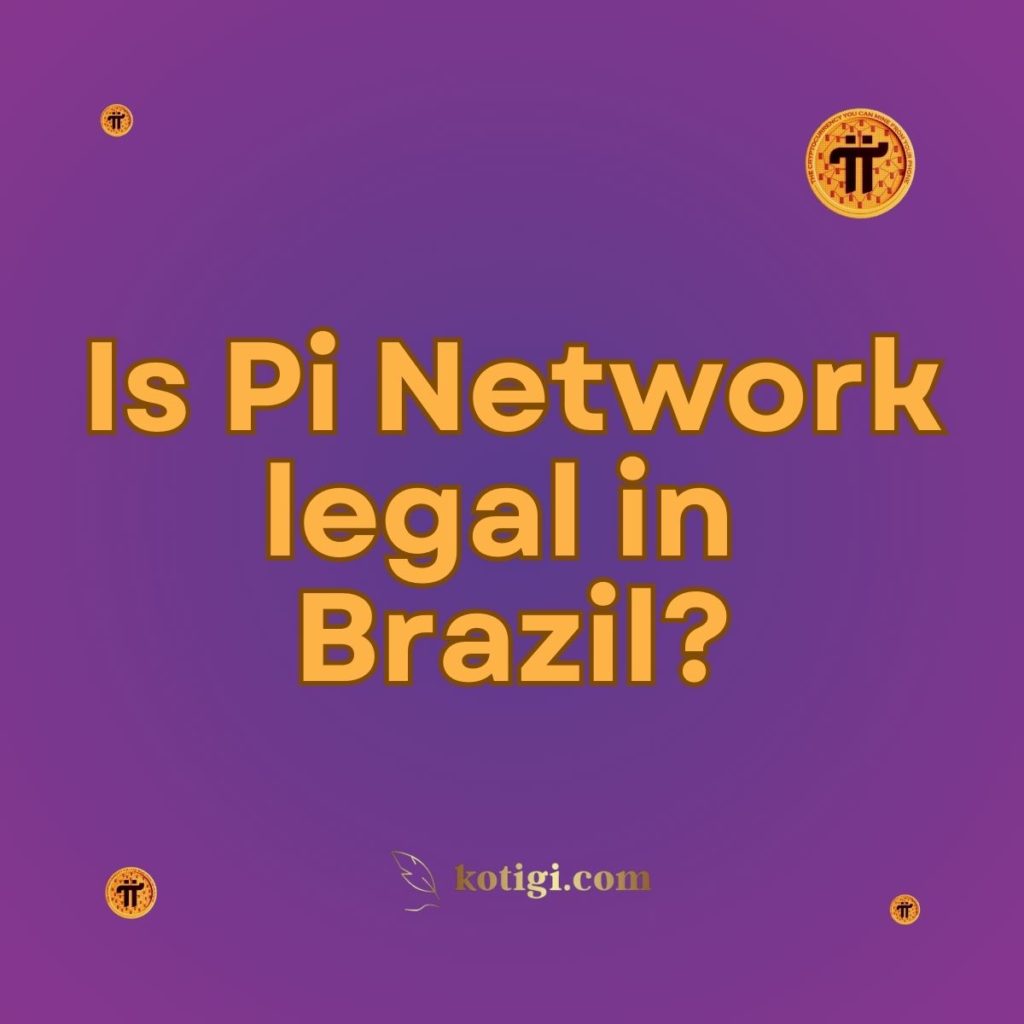
Is Pi Network legal in Brazil?
Yes, Pi Network is currently legal in Brazil. While there is no specific legislation directly regulating Pi Network or similar projects, Brazil has a regulatory framework that applies to cryptocurrencies and digital assets in general. The legal landscape is evolving as the government continues to develop clearer regulations for the crypto sector. Below is an overview of Pi Network’s regulatory status in Brazil:
1. Regulatory Status in Brazil
Cryptocurrencies, including Pi Network, are considered legal in Brazil. However, cryptocurrencies are not recognized as legal tender. Instead, they are classified as digital assets and are subject to specific regulations under the broader financial and securities laws of the country.
The Brazilian Securities and Exchange Commission (CVM) and the Central Bank of Brazil (Banco Central do Brasil) are the primary regulatory bodies overseeing the use and regulation of digital assets. The Central Bank of Brazil has not provided specific guidelines for Pi Network, but it regulates cryptocurrency-related activities to ensure financial stability and compliance with anti-money laundering (AML) regulations.
2. Oversight by Regulatory Authorities
The Central Bank of Brazil and the CVM are responsible for monitoring financial markets, including cryptocurrencies. If Pi Network develops features involving financial transactions or trading of tokens that might be classified as securities, it could fall under the jurisdiction of the CVM. This could include requirements for registration, reporting, and transparent information disclosure to investors and users.
The CVM has previously issued warnings to investors regarding the risks of investing in cryptocurrencies and Initial Coin Offerings (ICOs), advising caution and awareness of potential scams and fraud. If Pi Network were to launch an ICO or similar fundraising event, it would need to comply with CVM regulations.
3. Anti-Money Laundering (AML) and Know Your Customer (KYC) Compliance
Brazil has implemented comprehensive AML and KYC regulations that require cryptocurrency service providers to comply with guidelines to prevent money laundering and other illicit activities. If Pi Network or its services introduce features that involve financial transactions, they will need to adhere to these requirements, including verifying users’ identities and reporting suspicious activities to relevant authorities.
4. Taxation and Consumer Protection
In Brazil, cryptocurrencies are considered digital assets for tax purposes. Gains from the sale, trade, or exchange of digital assets, including Pi Network’s tokens, are subject to capital gains tax. Brazilian users must report their cryptocurrency transactions and pay applicable taxes according to the guidelines provided by the Federal Revenue of Brazil (Receita Federal do Brasil).
Brazilian consumer protection laws also require that all businesses, including those operating in the cryptocurrency sector, provide transparent information about their services and ensure fair treatment of users. If Pi Network operates in Brazil, it must comply with these laws to avoid legal challenges.
5. Future Regulatory Considerations
Brazil is moving towards a more defined regulatory framework for cryptocurrencies. The recent approval of the “Crypto Law” (Bill 4,401/2021) in 2022, which provides guidelines for the regulation of crypto assets, suggests that the country is seeking to establish clearer rules for digital assets. Although Pi Network is not specifically mentioned, it must comply with any new regulatory standards that emerge under this law to continue operating legally in Brazil.
Conclusion
Pi Network is currently legal in Brazil, but its future regulatory standing will depend on its development and adherence to Brazilian laws and regulations governing digital assets. The legal framework for cryptocurrencies in Brazil is evolving, and Pi Network must comply with the country’s regulations on AML, KYC, taxation, and consumer protection as the project progresses. Brazilian users should remain informed about regulatory changes to ensure compliance and minimize potential risks.




